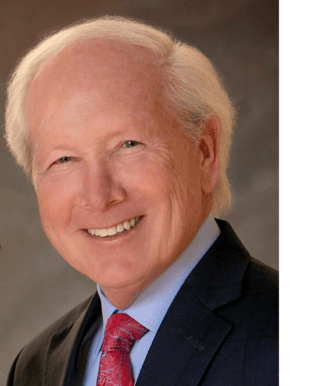Compliance Plan Effectiveness
Last Updated January 17, 2022

Written by: Dennis Swan, Contributor
According to the American Hospital Association’s 2017 Regulatory Overload Report: “Health systems, hospitals and post-acute care (PAC) providers must comply with 629 discrete regulatory requirements across nine domains.” This number is related to only four federal agencies. Therefore, the compliance challenge is even greater because state and private agency regulations are not included. Given the pace of federal, state, and private regulatory changes, and despite sporadic governmental attempts regarding “administrative simplification,” the actual number well exceeds 629.
The AHA study also found: “Health systems, hospitals and PAC providers spend nearly $39 billion a year solely on the administrative activities related to regulatory compliance…” In addition, there is potential for damage to the organization’s brand, along with possible fines, sanctions, recoupments, license restrictions, and threats of exclusion from governmental reimbursement programs. Therefore, failure to use best efforts to adhere to the organization’s comprehensive compliance plan will likely prove to be short-sighted, counter-productive, and exceedingly expensive.
Importance of a Compliance Plan
Developing, implementing, and maintaining an effective compliance plan requires sufficient financial resources and high integrity leaders determined to hold themselves, and their teams, accountable for promptly taking preventive and corrective actions. There will always be an infinite number of competing demands for finite resources, which include leadership time, focus, and attention. Difficult resource allocation choices will need to be made.
The pandemic continues to consume a considerable and growing share of annual operating budgets. In addition, human capital resources, in virtually all organizations, have been impacted by resignations, retirements, furloughs, and staffing reductions. Therefore, it is incumbent upon leaders to complete periodic audits to gage the quality and relative amount of people dedicated to compliance activities. In healthcare, such reviews are especially problematical because a sufficient number of qualified caregivers must also be in place to ensure safe, compassionate, quality patient care. Therefore, competition for human and other resources will always be intense. To ensure objectivity, it is essential to periodically compare the current allocation of compliance resources to recognized external benchmarks, compliance plan results, and the nature of the organization’s prioritized imperatives.
Resources such as appropriate staffing, information technology support, space, supplies, and working capital are essential. Equally important is having an executive team which will steadfastly hold themselves, and all others, responsible for compliance plan effectiveness.
Who is Accountable for Compliance?
Ultimately, the board of directors is responsible for approving the executive team’s written plan and regularly ensuring that leadership has the right compliance specialists in place to develop, update, and effectively execute the plan. In addition, the board and leadership team must work together to establish and nurture a culture of compliance. They must also ensure that every member of the team is aware of the plan, its purpose, and what each person is expected to do to help. The formidable and constant challenge will be to promote a culture of compliance while also striving to achieve a culture which values patient and caregiver safety, quality care, and service excellence.
A culture of compliance encourages and emboldens people to identify and self-disclose compliance risks, mistakes, and oversights. In addition, people throughout the organization should be made to feel confident to report, without fear of retribution, matters they have seen, heard, or question.
Requirements of a Compliance Plan
Preparing, implementing, and updating a written compliance plan are the minimum requirements. There should also be objective evidence that the plan is effective. Should the Office of the Inspector General (OIG), the Department of Justice (DOJ) or others choose to investigate an organization, being able to produce periodic measurements of compliance plan effectiveness could reduce or help avoid penalties. At a minimum, a plan needs to be well written, comprehensive, and properly communicated. But the plan’s actual purpose is to always ensure proper conduct thorough informed, timely, and appropriate action. When was the last time the effectiveness of your compliance plan was objectively measured?
Measuring ongoing compliance plan effectiveness begins with organization leaders and compliance specialists being familiar with key OIG and DOJ materials including the OIG Work Plans. For example, the OIG’s “Measuring Compliance Program Effectiveness: A Resource Guide” can help determine the extent of compliance awareness and the health of the culture of compliance. In addition, the June 2020 report from the Department of Justice regarding the “Evaluation of Corporate Compliance Programs” could be helpful for compliance specialists, legal counsel, auditors, and the leadership team.
Leadership Responsibilities
Regardless of the strength of the compliance plan, what kind of example are leaders setting? Do they communicate, by words or actions, that compliance is a hassle and a burden on time, energy, and resources? Or do they clearly demonstrate that compliance is expected of each member of the team because the organization is seriously committed to integrity, honesty, transparency, and ethical conduct in every corner of the organization.
Compliance is a complex and dynamic process with constant changes and updates. But leaders should try to avoid getting lost in all the details. Despite voluminous compliance plans, it all boils down to always following the law and steadfastly adhering to uncompromising standards of organizational and individual ethical conduct and integrity.
Bio: Dennis A. Swan became Sparrow Health System President and CEO in June 2005 after serving as interim president beginning November 1, 2004. He retired January 2, 2019. A member of the Sparrow executive team over 37 years, Swan previously served as Sparrow’s Senior Vice President of Operations and Chief Operating Officer.

Swan is a Life Fellow in the American College of Healthcare Executives. His is a Past Board Chair of Affirmant Health Partners, the Caymich Insurance Company, Ltd., the Michigan Health and Hospital Association (MHHA), the Lansing Economic Area Partnership (LEAP), and the Capital Area United Way.
Among his awards are: AHA Grassroots Champion, MHHA Meritorious Service, Boy Scouts Distinguished Citizen, LEAP Legacy, United Way Outstanding Volunteerism, and Western Michigan
University Alumni Outstanding Achievement.
Dennis graduated manga cum laude from Western Michigan University with a bachelor of arts degree. He earned his law degree, with honors, from Western Michigan University Cooley Law School. Prior to joining Sparrow in 1981, he had a 12-year career with two leading bank holding companies.


